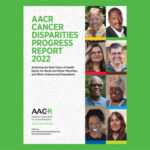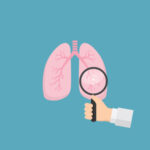-
June 17: The Week in Cancer News
Clinical trials rebound after COVID-19 setbacks, and early treatment leads to significant reduction in anal cancer risk among people with HIV.
by Thomas Celona
-
A Look at Disparities Across Cancer Care
A new AACR report tracks progress in addressing cancer health disparities and identifies work that still needs to be done.
by Eric Fitzsimmons
-
Credit Agencies to Remove Some Medical Debt From Reports
Changes to what medical debt is included in credit reports could give patients more time to resolve outstanding bills.
by Karon Warren
-
June 10: The Week in Cancer News
Patients who lose weight through bariatric surgery have a lower cancer risk, and a HER2-targeted therapy gets striking results in HER2-low breast cancer patients.
by Kevin McLaughlin
-
June 3: The Week in Cancer News
Contrast dye shortage delays scans for cancer, and more public assistance linked to higher survival rates for Black cancer patients.
by Eric Fitzsimmons
-
May 27: The Week in Cancer News
A blood test could help determine who benefits from checkpoint inhibitors in lung cancer, and the FDA approves a drug combination for certain patients with acute myeloid leukemia.
by Marci A. Landsmann
-
May 20: The Week in Cancer News
Esophageal cancer increases in the middle-aged, and adolescent and young adult leukemia survivors face continued mortality risk after treatment ends.
by Eric Fitzsimmons
-
The Mental Toll of a Cancer Diagnosis
New studies shine a light on the effects of a cancer diagnosis on mental health and suicide risk.
by Pamela Rafalow Grossman
-
May 13: The Week in Cancer News
First child to receive CAR T-cell therapy celebrates 10 years cancer-free, and authorization denials delay treatment for patients with Medicare Advantage.
by Marci A. Landsmann
-
May 6: The Week in Cancer News
Adolescents and young adult cancer survivors at higher risk for dying from a new cancer diagnosis, and FDA grants full approval to Enhertu for metastatic HER2-postive breast cancer.
by Eric Fitzsimmons
Cancer Talk
Treatment Combination Improves Survival in EGFR-positive Lung Cancer
Adding chemotherapy to targeted therapy improves outcomes for people with advanced EGFR-positive non-small cell lung cancer.
by Sandra Gordon
Lessons From 20 Years Living With CancerMultiple myeloma survivor Jonathan Gluck reflects on uncertainty, and the scientific progress that has kept him living with cancer for more than two decades.
by Eric Fitzsimmons
The Enduring Importance of Cancer Disparities ResearchOpening session from AACR conference highlights how perseverance and adversity have informed cancer disparities research over the years.
by Eric Fitzsimmons
Most Cancer Survivors Don’t Meet Healthy Diet GoalsDespite research linking fruits and vegetables to cancer survival, many people do not change their eating habits after diagnosis.
by Darlene Dobkowski














